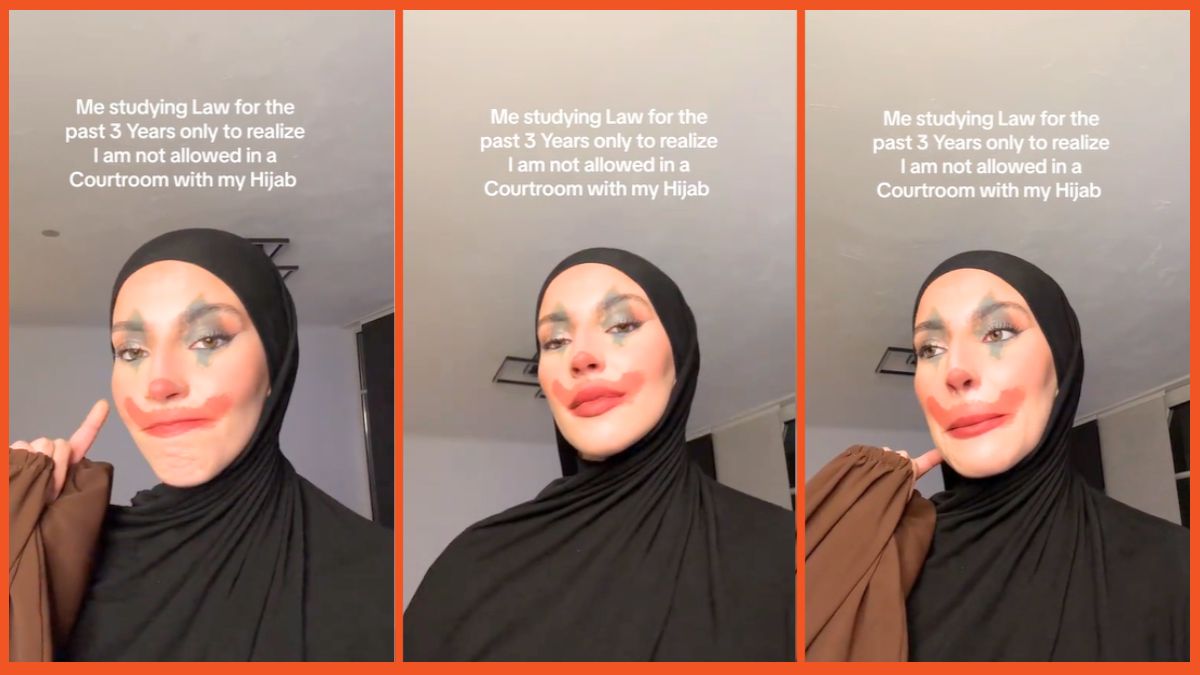Imagine spending three years mastering the arcane art of legalese, only to discover that the battleground of the courtroom might be off-limits — not because you can’t handle the jargon or because your arguments are weak, but because of a dress code technicality.
This is the reality for one aspiring lawyer on TikTok, @elisa.llt1, who shared her story in an 11-second clip. What’s the issue, you ask? Did she turn up in a suit of armor? Nope. It’s her hijab.
The TikTok crowd wasn’t about to let this one slide. The comments section was lit with witty responses. One user quipped, “Your first case: fight that in court.” Touché! Another wondered, “how does a hijab bother or affect a courtroom at all???” Valid question, my friend. And my personal favorite: “wear a wig over the hijab? idk im trying.” Points for creativity!
The core issue is whether prohibiting a hijab in the courtroom is a reasonable and justified limitation on a lawyer’s freedom of religion. There are valid arguments on both sides that need to be carefully weighed. On one hand, the hijab is a sincerely held religious practice for many Muslim women. Banning it could be seen as unjust religious discrimination that prevents qualified individuals from fully participating in the legal profession solely due to their faith.
There’s an argument that the hijab itself does not inherently compromise the fairness or secularity of the courtroom. On the other hand, the courtroom is meant to be a secular space where the law, not religion, is paramount. Some argue that overt displays of religious affiliation by officers of the court could undermine perceptions of impartiality and the secularity of the law. Similar restrictions often apply to other religious garments. Balancing religious freedoms with secularism in state institutions is a complex issue many societies grapple with. Reasonable people can disagree on where exactly to draw the line.
In fact, many countries have grappled with this issue and have come to different conclusions. In the U.S., for example, there is no federal law prohibiting religious garb in courtrooms, and several states have explicitly allowed hijabs, kippahs, and other religious attire. Canada, too, has seen its share of debates, with the Quebec government facing backlash over its proposed ban on religious symbols for public sector employees, including lawyers. It seems that when it comes to hijabs in the courtroom, the jury is still out.
My view is that an outright ban on the hijab for lawyers seems hard to justify and is likely discriminatory. A hijab does not prevent a lawyer from doing her job or inherently compromise the process. However, I do think it’s legitimate for there to be some limits and standards around overtly religious garb in court to preserve its secularity if applied fairly to all faiths. Finally, to the TikToker’s professors, I say this: Next time, maybe slip a little heads-up into the syllabus. Something like, “Attention all aspiring lawyers: check your religious attire at the door.” You know, just to avoid any awkward courtroom fashion faux pas down the line.
